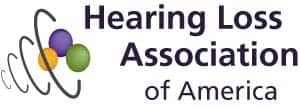The following is an open letter by Brenda Battat, executive director of Hearing Loss Association of America (HLAA), regarding HLAA’s support for hi HealthInnovations, United HealthCare’s direct to consumer hearing aid subdivision.
If you would like to comment on these messages, please leave your thoughts on HR’s Facebook page.
***
Message To Audiologists, Hearing Aid Specialists, Hearing Aid Manufacturers
Fri, 03/16/2012
Thank you for expressing your concerns about the direct to consumer United HealthCare program.
HealthCare program.
We have not joined audiologists, hearing aid specialists and hearing aid manufacturers in their opposition to the new United Healthcare direct service to consumers. Our stance is to give innovative programs such as this one a chance. Why are we saying this?
Hearing loss is a leading public health concern with 17% of American adults (36 million) reporting being affected. Left untreated, especially among seniors, hearing loss impacts a person’s overall health, leading to conditions such as social isolation, depression, and possibly dementia. Yet, fewer than 20% of people with hearing loss seek treatment and obtain hearing aids. While there are a number of reasons for lack of attention to this condition, the primary barrier is the cost of hearing health care services and especially hearing aids. It is certainly the most common call that comes into the HLAA office each day; the number one page visited on the HLAA website is how to get financial help to purchase a hearing aid; and the number one advocacy priority that emerged from surveys conducted as part of the recent HLAA board of trustees strategic planning process was to focus on accessible and affordable hearing health care.
Then there are the hidden costs of hearing loss and lack of access to hearing healthcare. Making it easier to seek help and afford hearing aids is a way to manage the total quality of life and the healthcare costs of millions of people with hearing loss. We need to open more doors and lower the hurdles to seeking and receiving hearing healthcare. There has been a paradigm shift with more options for hearing screenings via mobile apps, the Internet and development of innovative screening tools. Further, consumers are handling their own health care, including hearing health care, in different ways taking more control. Software has been developed for cochlear implantees to program their implants remotely via the Internet and hearing aid manufacturers are moving in that direction also so that people can program their own hearing aids without needing to pay a visit to their provider.
The HLAA agrees that face-to-face interaction with a health care professional to obtain personalized fitting of hearing aids as well as follow-up services is the ideal situation. However, this approach operates as a burden for a vast majority of adults with hearing loss who simply do not seek treatment. The cost factor is one major burden. In addition, the existing societal stigma means that a large number of these individuals simply may be more comfortable screening their hearing proficiency in the privacy of their homes. In this day and age, it is very common for people to assess their health care needs by doing online research and self-evaluation before visiting a healthcare professional.
The online hearing test offered by UHC hi HealthInnovations is likely to provide an entry point to treatment for individuals with hearing loss who avoid going directly to a hearing healthcare professional. Once these people see the results of the online test, many will take further action to address their hearing loss. This applies both to those who are found to be candidates for the open-fit hearing aids for which the hi HealthInnovations program is designed and for those who are advised that their hearing condition requires personalized care and treatment. In fact, individuals who are deemed unsuitable candidates by the test are specifically referred to an audiologist within or outside the United HealthCare network. Increasing the number of people who seek treatment for their hearing loss either under the program or by other means is clearly a positive outcome for consumers.
The HLAA Board of Trustees met and reviewed the information on the UHC/HI program in interaction with Dr. Lisa Tseng, CEO hiHealthInnovations, and concluded that this alternative delivery model was a plausible option for some people who would otherwise not seek the services of a hearing professional. HLAA has always encouraged consumers to work closely with a hearing healthcare professional they trust as the best way to become a successful hearing aid user and will continue to do so. However, because of the multitude of approaches available to consumers to address their specific healthcare needs today and because not all individuals will need the same level of care, HLAA is recommending caution with trying to shut down innovative models that might be a viable alternative for some people.
Brenda Battat
Executive Director
HLAA


.gif)

